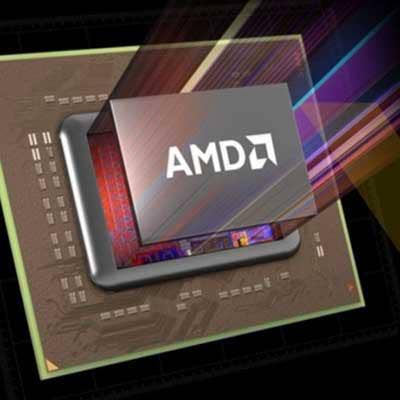AMD Exec: Intel's Chip Manufacturing Troubles 'A Real Tailwind For Us'

A senior AMD executive called Intel's manufacturing troubles "a gift" that gives the semiconductor giant's largest rival an "unexpected" advantage in delivering faster, more powerful chips.
In an interview with The Information, Forrest Norrod, senior vice president and general manager of AMD's Datacenter and Embedded Solutions Business Group, said he thinks AMD has a "year lead now" over Intel, which announced in April that it delayed a more advanced chip manufacturing process to sometime in 2019.
"We didn’t expect Intel to stumble as they have on the manufacturing side," Norrod told the tech news publication. "We never expected that. This is a real tailwind for us. I liked our previous plan, but it’s a gift that Intel has given us. We just need to make sure we don’t screw it up."
At the heart of the issue is the drive to make chips with greater transistor density, which improves performance and energy efficiency while enabling new capabilities. It's part of Intel's "tick-tock" model, which the company adopted in 2007 to drive "continued innovations in manufacturing process technology and processor microarchitecture," according to its website.
The problem for Intel is that it has delayed mass-manufacturing of its 10-nanometer chip for multiple years now, meaning that the company has largely continued to rely on selling chips made using the 14-nanometer process that first began in 2014. The company did debut its first 10-nanometer CPU in May, but it's far from the mass volume the company had previously promised.
Intel declined to comment on The Information's report. CEO Brian Krzanich said at last month's annual shareholders meeting he did not see the company's manufacturing issues as a competitive threat.
AMD, on the other hand, has said that it's preparing to launch its 7-nanometer CPU in 2019, with a graphics card of the same transistor density also in the works.
Bob Venero, CEO of Future Tech, a Holbrook, N.Y.-based Intel partner and No. 115 on CRN's 2018 Solution Provider 500, said Intel's manufacturing issues haven't been a concern for enterprise customers.
"Obviously we all want things that are going to be smaller and more energy efficient, but as you look at the speeds and feeds, we're hitting the crest," he said.
However, Venero said power consumption "more than anything" is top of mind for enterprises. But he's confident that Intel will sort out any problems.
"At the end of the day, if AMD can do it, Intel can do it," he said.
Kent Tibbils, vice president of marketing at ASI, a Fremont- Calif.-based distributor and Intel partner, said the manufacturing process is not a consideration when resellers are evaluating vendors like Intel.
"The most important factors resellers use to evaluate their partnerships are product technology, features, and capabilities but they also place tremendous value on the manufacturer's commitment to the channel," he said in an email. This commitment includes things like "market leadership, market development, innovation, channel support, channel programs, training, and warranty, which are all equally important to the technology," Tibbils added.
"Intel excels in all these areas so even though the technology and product innovation attract most of the attention through product innovation, their channel leadership demonstrated through their commitment to help resellers create as well as define market opportunities are also critical value adds," he said.